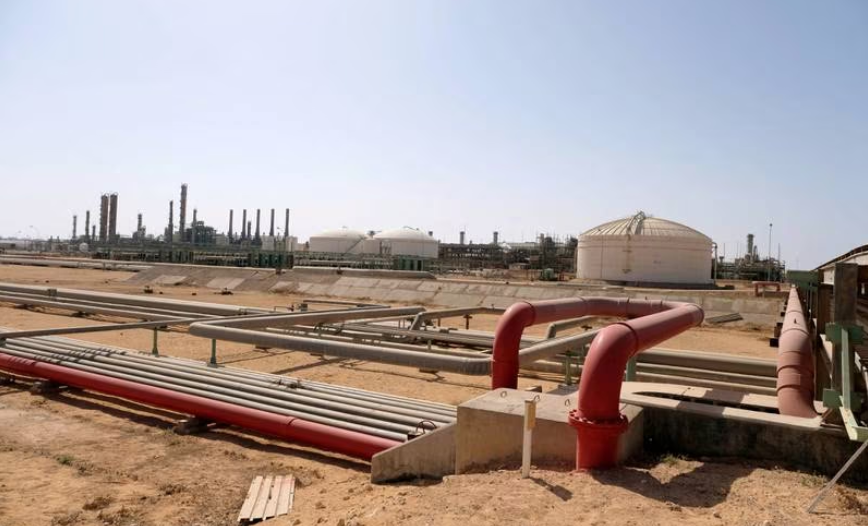The country faces the challenge of reducing its reliance on hydrocarbons, while fostering stronger and more inclusive private sector-led growth, lender says

An oil and gas company in Ras Lanuf, Libya. Hydrocarbon production in Libya is forecast to grow by about 15 per cent in 2023, the IMF said. Reuters
The economic fortunes of Libya, North Africa’s second-largest oil producer, will depend upon oil and gas production for the foreseeable future, according to the International Monetary Fund (IMF).
Hydrocarbon production there is projected to grow by about 15 per cent to around 1.2 million barrels per day in 2023 following an increase in oil production from 1 million bpd in 2022, and increase gradually thereafter, the Washington-based lender said following discussions for the 2023 Article IV consultation for Libya in Tunis, Tunisia, during March 11 to 17.
“Looking ahead, assuming fiscal spending remains contained, the baseline projection is for gradually declining fiscal and external surpluses over coming years,” the IMF said.
“Key risks to the outlook are lower oil prices due to lower-than-expected global growth, and renewed conflict and/or social unrest that leads to disruptions in oil production.”
Crude oil and natural gas export revenue are a significant part of Libya’s economy.
In 2021, oil revenue accounted for an estimated 98 per cent of Libya’s total government revenue, according to the country's central bank.
Libya, the seventh-largest crude oil producer in Opec, has also been looking to boost production in recent months after years of being plagued by conflict and political instability.
The country's National Oil Corporation plans to increase oil production to 2.1 million barrels per day by 2025.
To reach this target, it aims to develop projects and rehabilitate oilfields damaged during conflict while increasing power supply to those areas.
There have been exceptional swings in Libya’s oil production and revenue since 2011, the IMF said.
“Despite this, the measures taken by the Central Bank of Libya, including the currency’s devaluation, helped to maintain a large stock of international reserves,” the lender said.
“Looking ahead, the stability of the exchange rate will remain an important anchor for monetary policy.”
The country's economy is anticipated to grow by 17.9 per cent in 2023 after shrinking by an estimated 18.5 per cent in 2022, according to IMF data.
However, Libya faces the challenge of reducing its reliance on hydrocarbons, while fostering stronger and more inclusive private sector-led growth, the IMF said.
The speed at which the international community is mobilising to reduce carbon emissions and recent leaps in clean energy technology pose a risk of disorderly adjustment for economies dependent on oil, it said.
Libya is at risk of falling behind these important global trends, it said.
“Structural reform efforts should focus on strengthening institutions and developing a more purposeful and transparent economic strategy for the future,” the IMF said.
“This would be an opportunity to rally the population behind a clear plan to optimise the use of oil revenue to achieve economic diversification and improve living standards and inclusivity.”
Libya has endured more than a decade of conflict since the 2011 revolt that toppled Muammar Qaddafi, with a myriad rival militias, foreign powers and governments vying for influence.
The country is split between a supposedly interim government in the western capital, Tripoli, and another in the east nominally backed by Field Marshall Khalifa Haftar.